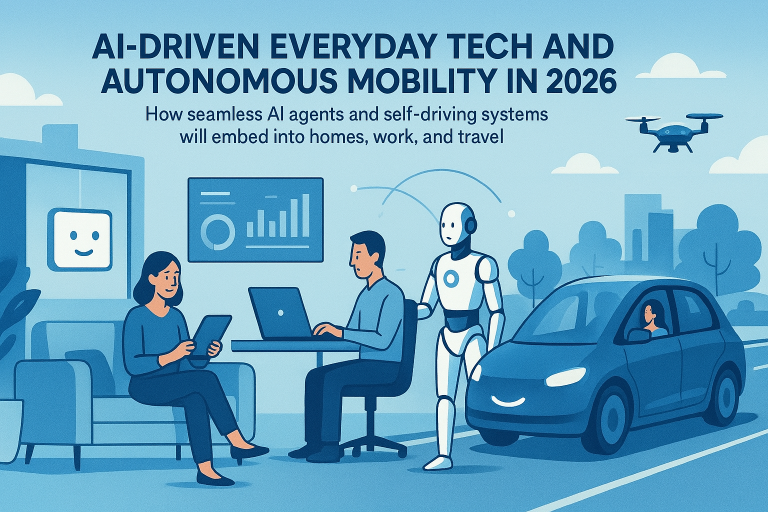
Affiliate Marketing
In the dynamic world of digital content, affiliate marketing and content monetization have emerged as powerful methods for creators to earn money online. Whether through blogs, YouTube, or social media platforms, these strategies have allowed individuals and businesses to generate income while pursuing their passion. As digital spaces continue to expand and evolve, mastering these techniques has never been more essential for anyone looking to turn their online presence into a profitable venture.
The growth of digital marketing and the rise of content creators have led to an explosion of opportunities to monetize content across various platforms. However, success in this arena doesn’t happen overnight. It requires a mix of creativity, strategy, and persistence. This article explores affiliate marketing, content monetization, and actionable strategies for making money through blogs, YouTube, and social media.
The Rise of Affiliate Marketing and Content Monetization
The internet has redefined the way people think about earning a living. Traditional employment is no longer the only route to financial success. As digital marketing tools have become more sophisticated, affiliate marketing and content monetization have created pathways for anyone to leverage their knowledge, creativity, and digital presence to generate revenue.
In its essence, affiliate marketing involves promoting third-party products or services and earning a commission for each sale made through your referral link. It’s a simple, yet effective model that aligns the interests of advertisers, creators, and audiences. For bloggers, YouTube creators, and social media influencers, affiliate marketing can be a lucrative revenue stream when done correctly.
Content monetization, on the other hand, refers to various ways content creators can turn their digital content into a source of income. Whether it’s through advertisements, sponsored content, or exclusive memberships, the possibilities are endless. Platforms like YouTube, Instagram, and blogs offer creators multiple avenues to monetize their content in a way that resonates with their audience.
Let’s dive deeper into how these strategies are applied to blogs, YouTube, and social media.
Affiliate Marketing: Turning Traffic into Revenue
One of the most popular methods for earning money online is through affiliate marketing. For bloggers, YouTubers, and social media influencers, it’s an essential part of the monetization process. By incorporating affiliate links into content, creators can promote products and services that are relevant to their audience and earn a commission on each successful referral.
Affiliate Marketing on Blogs
For those engaged in blogging for profit, affiliate marketing is a fundamental strategy for monetization. Bloggers can sign up for affiliate programs that align with their niche and audience interests. This could include anything from tech gadgets to fashion products, and even services like web hosting or online courses.
To succeed in affiliate marketing through blogs, the key lies in creating high-quality content that provides value to your readers. Whether you’re writing product reviews, how-to guides, or listicles, embedding affiliate links naturally into your content can drive traffic to these affiliate products.
The most successful bloggers in affiliate marketing often follow these practices:
- Product reviews and recommendations: Share personal experiences with products or services that your audience would find valuable. Include affiliate links to make it easy for readers to make a purchase.
- Resource pages: Many successful bloggers create dedicated pages listing the best tools, products, or services in their niche, using affiliate links for each recommendation.
- Email marketing: Building an email list is a powerful way to engage with your audience and share affiliate links in newsletters.
By consistently providing valuable, authentic content, bloggers can generate passive income through affiliate commissions, which can grow exponentially as their audience expands.
Affiliate Marketing on YouTube
YouTube has become a dominant platform for digital marketing and is one of the most effective channels for affiliate marketing. YouTube marketing is an art form in itself, and creators who master it can turn their videos into powerful sales tools. Affiliate links can be placed in the video description, within the video itself, or mentioned in the video content.
There are many strategies for leveraging affiliate marketing on YouTube:
- Product unboxing and reviews: These types of videos are perfect for showcasing affiliate products. By providing honest reviews, you build trust with your audience, which is essential for generating sales through your affiliate links.
- Tutorials and how-to videos: These videos can incorporate affiliate links to tools and services that you recommend. Viewers are more likely to trust a creator’s advice if they’re shown exactly how to use a product or service in a practical setting.
- Call-to-action: Encouraging viewers to click on the affiliate link in the video description or pinned comment can significantly boost conversions.
One of the most effective techniques for YouTube marketing is using affiliate marketing in a way that feels organic. When viewers trust the creator, they are more likely to click on the affiliate link and make a purchase.
Social Media Monetization: The New Frontier
The influence of social media is undeniable, and social media monetization is one of the most lucrative avenues for content creators today. Platforms like Instagram, Facebook, TikTok, and Twitter have introduced several monetization tools that enable creators to earn money directly through their posts.
Social Media Monetization through Affiliate Marketing
Social media monetization strategies often revolve around affiliate marketing. Influencers on Instagram and TikTok can share affiliate links in their posts, stories, and bios. For example, Instagram’s “Swipe Up” feature and TikTok’s link in bio are popular ways to share affiliate products directly with followers.
For successful social media marketing, it’s crucial to:
- Engage your audience: Social media is all about interaction. Replying to comments, hosting live sessions, and sharing behind-the-scenes content can foster a relationship of trust with your followers, which is essential for effective affiliate marketing.
- Showcase products creatively: Posts showcasing products in everyday settings or through storytelling resonate well with social media audiences. Authenticity is key, and audiences are more likely to purchase through affiliate links when the product or service is presented in a way that feels genuine.
Platforms like Instagram also allow for sponsored posts, where influencers can directly collaborate with brands to promote products in exchange for payment. These collaborations can be lucrative and are a form of content monetization that bypasses the affiliate model.
Social Media Monetization Beyond Affiliate Marketing
While affiliate marketing is a cornerstone of social media monetization, there are many other ways to earn money on these platforms. Some creators have shifted to offering premium content through memberships, subscriptions, or Patreon accounts. Platforms like Instagram and TikTok have also begun offering creators tools to monetize their live streams, which has created new opportunities for engagement and income.
Blogging for Profit: More Than Just Words

For many, blogging remains the foundation of their content monetization strategy. It’s a powerful tool for sharing knowledge, connecting with audiences, and establishing authority in a particular niche. However, for blogs to be profitable, creators must incorporate effective monetization strategies beyond just displaying ads.
Blogging for Profit through Affiliate Marketing
As mentioned earlier, affiliate marketing is one of the most successful ways to earn money online through blogging. Bloggers should focus on creating long-form content that solves problems for their readers and naturally incorporates affiliate links to products or services that are genuinely helpful.
To maximize earnings, bloggers can also:
- Diversify affiliate programs: Instead of relying on just one affiliate program, bloggers should diversify their partnerships to include a variety of products and services that align with their niche.
- Optimize for SEO: Ensuring that blog posts rank well in search engines increases organic traffic, which translates to more potential clicks on affiliate links. Understanding SEO basics such as keyword research and optimizing meta descriptions can increase visibility.
- Create evergreen content: Writing timeless content that continues to generate traffic over time is a great way to ensure consistent earnings from affiliate marketing. By ranking for valuable keywords, blog posts can generate ongoing passive income.
Other Content Monetization Strategies for Bloggers
Beyond affiliate marketing, bloggers can also generate revenue through:
- Display ads: Platforms like Google AdSense allow bloggers to place ads on their sites. Although display ads generally offer lower revenue, they can still serve as a steady income stream for high-traffic blogs.
- Sponsored posts: Many businesses pay bloggers to write sponsored posts or product reviews. This form of content monetization allows brands to reach a targeted audience through a trusted voice.
- Selling digital products or services: E-books, courses, and templates are just a few examples of digital products that bloggers can sell directly on their websites. These products allow for higher profit margins compared to traditional affiliate marketing.
The Future of Affiliate Marketing and Content Monetization
As the world of digital marketing continues to evolve, the future of affiliate marketing and content monetization looks promising. New technologies like artificial intelligence, machine learning, and automation tools are making it easier for creators to personalize their marketing efforts and optimize their earnings.
Moreover, the continued growth of platforms like YouTube and Instagram, combined with the rise of niche social media platforms, offers more ways for content creators to monetize their content. For bloggers, YouTubers, and influencers, staying ahead of marketing trends and adapting their strategies accordingly will be key to sustaining long-term success.
Whether you’re just starting out or looking to scale your content monetization efforts, the strategies discussed here—affiliate marketing, social media monetization, and blogging for profit—are powerful tools to help you earn money online. The possibilities are vast, and with the right approach, anyone can turn their digital presence into a profitable venture.




